|
The Church celebrates National Vocation Awareness Week this year from November 5-11. According to the USCCB, it is “an annual week-long celebration of the Catholic Church in the United States dedicated to promote vocations to the priesthood, diaconate and consecrated life through prayer and education, and to renew our prayers and support for those who are considering one of these particular vocations.” In order to learn more about vocations and discernment, the Catholic Apostolate Center reached out to men currently in formation and asked them the following three questions: What were you doing before formation? What are you doing now? And what has this transition been like? Below are their answers about the transition from the collegiate atmosphere into formation for the priesthood and/or Consecrated life. What were you doing before formation? Before entering formation in the Society of the Catholic Apostolate, I was a full-time graduate student at the University of Notre Dame in South Bend, Indiana. I completed my doctorate in history, specializing in the religious and medical history of modern France. I was used to a fairly independent and loosely structured life. I owned my own home, studied and taught at the university, and was actively involved in my local community through civic and fraternal organizations. My life was dominated by an irregular schedule, where any time of the day was a good time to research and write my dissertation! What are you doing now? Currently I am in the second year of my novitiate, which is traditionally called the “scholastic” year because members of my community use this year to pursue any remaining college studies before entering a theology program. Luckily, my educational background afforded me the special opportunity to spend this year immersed in ministry at Bishop Eustace Preparatory School, a school owned by the Pallottines. I work a full day in the Christian Ministry Office, helping students develop their service projects and accompanying them on service retreats and projects at local charities and schools. I also substitute teach wherever I might be needed. Currently, I am filling in for a teacher on maternity leave. I teach a full course load of U.S. History, Government, and Criminal Justice classes. Twice a week I also take night courses to learn Italian, which is one of the two official languages of my community, and three nights a week I study selected topics in Pallottine life. In my spare time, when I am not grading papers or preparing lectures, I am working on a new edition of a biography of our founder, St. Vincent Pallotti, and a translation of our history from an Italian original. My day begins and ends with the Eucharist and is anchored by the Liturgy of the Hours, which is a source of strength and mission for me each day. What has this transition been like? As you can see above, I do not lack things to do! It was certainly an adjustment moving from the uncertain schedule of graduate student life to the precise one of a religious novice. It has been a time of growing closer to Jesus Christ and seeing how He acts in my life and sets a special vocational path in front of me. The transition has been one of growing closer to Christ as Apostle of the Eternal Father, learning the unique spirituality of Pallottine life, and how to apply this charism to my own physical, spiritual, intellectual, and apostolic development. Further, the deep sense of companionship and accompaniment by Brother Jim, my Director of Preparatory Formation, has inspired me to enkindle the flame of our charism within my own life. I am able to apply all my skills and talents in academia to my life as a Pallottine novice, and each day I am surprised by the new and creative ways I discover to make our charism alive to others. To learn more about Vocational Discernment, please visit our Vocational Discernment Resource Page.
0 Comments
The Church celebrates National Vocation Awareness Week this year from November 5-11. According to the USCCB, it is “an annual week-long celebration of the Catholic Church in the United States dedicated to promote vocations to the priesthood, diaconate and consecrated life through prayer and education, and to renew our prayers and support for those who are considering one of these particular vocations.” In order to learn more about vocations and discernment, the Catholic Apostolate Center reached out to men currently in formation and asked them the following three questions: What were you doing before formation? What are you doing now? And what has this transition been like? Below are their answers about the transition from the collegiate atmosphere into formation for the priesthood and/or Consecrated life. What were you doing before formation? Before I entered seminary, I attended The Catholic University of America for two years, where I majored in Philosophy. I like to think that I was your average college student. I was a Resident Assistant my sophomore year; I was involved in the Knights of Columbus; I held a few on-campus jobs. I had a close group of friends who would go to daily Mass together, as well pray the rosary and spend time in Washington, D.C. I tried to be as active in college as I could. What are you doing now? I am in “College IV,” which is the equivalent to being a senior, at the Saint John Fisher Seminary program for the Diocese of Bridgeport. This is currently my second year in formation. I am working towards my Bachelor of Arts Degree in Philosophy from Sacred Heart University (SHU). I live with seven other men in the diocesan formation program. Our daily schedule begins with a Holy Hour in the morning, followed by Holy Mass and breakfast. We have classes throughout the day, some at SHU, some at the seminary. In the evening we gather for prayer and dinner. After graduation in May, I will be going to a Major Seminary to begin my four years of Theology Studies. What has this transition been like? Like any major life change, the transition into seminary formation has had its challenges. It was very hard to leave the community I was involved in at CUA. However, seminary is not something you do on your own. I learned the importance of fraternity through my involvement with the CUA Knights, and seminary formation deepened this fraternity. After adjusting to the daily schedule, and better understanding what it really means to give my life for Christ, the transition into seminary became less challenging. I have had no regrets from transferring into seminary in the middle of my undergraduate career. The transition from college into seminary, as hard as it was, taught me how important it is to trust in God’s plan, and how much joy and peace listening to Him will bring to our lives. To learn more about Vocational Discernment, please visit our Vocational Discernment Resource Page.
The Church celebrates National Vocation Awareness Week this year from November 5-11. According to the USCCB, it is “an annual week-long celebration of the Catholic Church in the United States dedicated to promote vocations to the priesthood, diaconate and consecrated life through prayer and education, and to renew our prayers and support for those who are considering one of these particular vocations.” In order to learn more about vocations and discernment, the Catholic Apostolate Center reached out to men currently in formation and asked them the following three questions: What were you doing before formation? What are you doing now? And what has this transition been like? Below are their answers about the transition from the collegiate atmosphere into formation for the priesthood and/or Consecrated life. What were you doing before formation? Besides delaying the inevitable and drinking too much coffee, I was studying Philosophy and Theology as an undergraduate student at The Catholic University of America before entering into formation. I was a Resident Assistant for three years and was involved with the Knights of Columbus Council on campus. I also had a part-time job working in the Liturgy Office at the Basilica of the National Shrine of the Immaculate Conception in D.C. This experience strengthened my desire to serve as a parish priest, and ultimately led me from my status as professional discerner to full-time seminarian. What are you doing now? I am currently studying for my home Diocese of Rockville Centre at Saint Joseph’s Seminary in Yonkers, New York (about 30 minutes north of New York City). It is the major seminary for the Archdiocese of New York and the Dioceses of Brooklyn and Rockville Centre. I am in my first year of Theology studies, which is the beginning of a four-year academic track. What has this transition been like? I have had a very smooth transition into my first year of seminary. Having no background in college seminary or pre-theology has had its own set of challenges, but my undergraduate career at Catholic University proved to be very formative. Life in seminary is a structured vocational program, though it is designed for your benefit. It is a consolation knowing that where the formation faculty leads me will result in spiritual progress and preparedness for priestly ministry. There is amazing freedom that comes in submitting to God’s will and allowing him to supply each day with new excitement and joy. To learn more about Vocational Discernment, please visit our Vocational Discernment Resource Page.
Praying for vocations is an important task we are given as members of the Church, one that is often overlooked or only half-heartedly remembered during National Vocation Awareness Week in November. Yet, our collective failure to significantly pray for and encourage the thoughtful discernment of vocations is one of the bigger problems we face as a Church. It directly affects our ability to carry on the faith to future generations. On top of that, there’s another vocations problem that we face; in fact, there are four of them. We are called to pray not only for priestly vocations, but also those to marriage, consecrated religious life, and the single life. This is something we often forget: there are multiple vocations. When we pray for vocations, are we truly open to whatever God is calling us to do? Are we willing to consider and discern what cross he is asking us to take up, what sacrifices he’s asking us to make as either a priest, religious, spouse, or single person? To be clear, we do have a serious priest shortage on our hands. We should pray for vocations to the priesthood in a particular way. We have far too few men entering our seminaries to sustainably manage the Church we’ve grown. Too few have taken up the mantle as more and more priests are hitting the ever-increasing age of retirement. Too many parishes have been consolidated due to the lack of priests. It is "truly right and just" that we pray for more vocations to the priesthood! On the other hand, if we are going to pray for vocations, we should also pray for a proper understanding of all four. I often hear of my peers being asked when they’re going to "settle down and have some kids." If each of us has his or her own particular calling, shouldn’t we encourage one another to earnestly discern our respective vocations? Shouldn’t parents encourage their sons and daughters to look at the possibility of marriage, priesthood, religious life, and single life as equally viable answers to God's call? Or is the expectation that they get married and give their parents grandchildren? “God, please inspire more young men to answer the call … but, please, not MY son!” This doesn't discount the great need to shift our view on the vocational nature of marriage. If we don’t, we risk: a) overly romanticizing marriage and b) placing the priesthood and religious life in an ivory tower, reserved only for the most noble and selfless among us. And of course, most people are ultimately called to marriage; it's necessary in order to keep humanity—and the Church—alive through the ages. But we desperately need more holy marriages, more vocational marriages. Not only do they contribute to the work of sanctifying the secular world, but they are also directly responsible for creating the next generations of priests and religious. Without an increase in vocations to marriage, our shortage of religious vocations will continue as well. And let’s not forget about the single life. Some people do, in fact, have a calling to serve the Church and sanctify the world through a life of lay celibacy. That calling is of equal importance to the other three; such individuals have a unique capacity for service that the other three vocations just don’t allow. The celibate single life, when discerned well, is an incredibly life-giving vocation. We need more vocations, period. So when we pray “for an increase in vocations,” let’s pray for an increase in all of them: vocations to the priesthood, religious life, single life, and marriage. The truth is that all four types of vocation have distinct strengths that contribute to the Church's mission of sanctifying the world. Most importantly, when we pray for vocations, do we acknowledge that we ourselves are the answer to those prayers? Like it or not, we are. We pray to God to end hunger, but we are the ones he's sent to end that hunger. We pray to God for world peace, but we are the ones he's sent to bring about that peace. We pray to God for more vocations to the priesthood, but we are the ones he's sent to encourage (and answer) them. When we pray for vocations let us also pray that we come to know our own and can fulfil it with a joyful heart. May our Blessed Mother encourage us to faithfully discern how her Son calls us to serve each and every day. Our Lady, Seat of Wisdom, pray for us!
This week, the Church celebrates National Vocation Awareness Week. In a particular way, we pray for an increase in awareness and openness to vocations in the priesthood and religious life. While the seminary and priesthood might have seemed like a logical next step to many of my friends and family members, it was certainly not what I had planned for myself. Very often, we get in the way of what God has planned for us because we want to be in control. We want to decide the next step. Well, as Pope Francis is fond of saying, “our God is a God of surprises.” God is certainly full of surprises: I now find myself in my third year of formation for the priesthood. I attribute this perceived vocation to the priesthood to the slow and ever-present assistance of God in my life. The Holy Spirit has been at work by placing people in my life who have assisted me in my journey of faith and discernment. These women and men have served as friends, guides, and fellow discerners of God’s call, and have assisted me in developing and sustaining healthy relationships centered on Christ and grounded in faith. While discernment is a very personal process, the vocation to the priesthood is not a “me” vocation. Priesthood is a vocation of service to the people of God. As I progressed in my discernment, I realized more and more that I am simply responding to a call that I have discerned over time, a call that I received in the sacrament of baptism. All the baptized are called to holiness, and priests are needed to preach the gospel message to them, to teach them the great truths of our faith, and to make them saints. Preaching, teaching, and sanctifying are at the very heart of a priestly vocation. Saint John Paul II said that parishes should be “genuine ‘schools’ of prayer”, and that it is the parish priest who is to be the master teacher of prayer. To be a priest is to be a servant and to stand in the person of Christ to preach, teach, and celebrate the sacraments. As a diocesan priest, I hope to do that within the context of the local parish, where I have experienced firsthand the importance of forming a community of faith. During this National Vocation Awareness Week, it is important to say thank you. Thank you for your support of vocations, seminarians, and religious in formation. Without the support of my family and friends—as well as the prayers of parishioners and total strangers—I certainly would not be in the seminary today! It is also important to ask for your prayers. The Lord certainly hears our prayers. There are many young people in our parishes and schools who are actively discerning their vocations, whether it is to priesthood, religious life, marriage, or single life. The Lord needs more laborers in the vineyard, so please pray that our communities may produce more workers to carry out his mission. Encourage young people—your children, your grandchildren, your friends, your students, your fellow parishioners—to consider what it is that the Lord may be asking of them. Sometimes simply asking the question can get the gears in motion or spur someone into speaking with a priest or religious about the possibility of a vocation. Join in asking the Lord to call more young people to discern vocations to help build up the Church. I believe that the Lord is calling many young people to serve him and the Church as priests and religious. Pray that they might have the courage to respond to that call, and to respond joyfully. To learn more about vocational discernment click here.
This week, Nov. 1-7, celebrates National Vocation Awareness Week , a time U.S. Catholics dedicate “to promote vocations to the priesthood, diaconate and consecrated life through prayer and education, and to renew our prayers and support for those who are considering one of these particular vocations.” We should always promote vocations, but sometimes we need an explicit reminder! We need more than a day or week; we need a culture. This week is about each of us taking a step toward fostering a culture of religious vocations in the Church. As many priests, sisters, brothers, etc., will tell you, the best way to support and promote religious vocations involves every one of us personally committing to live our own vocation faithfully and joyfully, whether that be in the priesthood, the diaconate, married life, consecrated life, etc. It’s impossible to be truly pro-marriage and be against religious vocations; they harmonize! Discerning and answering a call is our responsibility to the Church as baptized and confirmed members of the Body of Christ. Many young people who came face to face with St. Pope John Paul II would ask him: “What is my vocation!?” He used to say, “You must choose!” How disappointing in the moment, yet what a true and wise response! God endows each person with a unique vocation and graciously calls each to respond with the gift of his or herself. You may be thinking: easier said than done. It’s true; discernment is not always easy, especially when immersed in a consumer culture that frequently substitutes success for faithfulness and material gratification for spiritual wholeness. But discerning a vocation is also not an infinitely hard matter of finding a needle in a haystack. It simply is not true that only God’s “favorites” or the exceptionally smart or good looking end up truly happy. Below are some great practices the Church recommends for anyone discerning a vocation. Visit a Spiritual Director or Mentor One of the most important things you can do to discern and sustain your vocation is develop a relationship with a spiritual director or mentor. They do not necessarily need to be a professional theologian or psychologist; look for someone faithful and joyful in their vocation. Focus on finding someone that can offer practical guidance with whom you will be honest and transparent—someone who will consistently encourage you to pray and grow. If you are considering a religious vocation, it would be helpful to meet with a priest or member of religious life. Make Prayer a Priority Prayer is the essential element of discernment. This is probably not a surprise. It’s the time we lay out all our mixed thoughts and emotions before Jesus and let him reveal his way in our life. You can begin simply by praying: “God, help me to know your will for my life and desire it.” Practice going deeper into praying with the Bible and reflecting on passages from Scripture, sometimes called lectio divina, or try to learn or incorporate some part of the Liturgy of the Hours into your schedule. Cultivate Friendships Solid, faithful friendships go much further when discerning a vocation than having a plethora of worldly or romantic relationships. True friends know our identities are composed of both our weakness and our strengths. I often see my friends as a sort of vocational “litmus test;” they know me well enough to detect when choices or relationships seem in or out of step with my true character or wellbeing. Vocational awareness is a fruit of a culture of friendship, as I tried to suggest here. Develop a Tradition The Catholic faith has many rich, diverse, and time-tested charisms (e.g., Franciscan, Ignatian, Dominican, Carmelite, Pallottine, etc.) that can inspire and nourish vocations to religious life and marriage alike. While it’s great to explore and incorporate the tools of many traditions, try to become fluent in one. Different charisms have a special resonance with different people. Learn Their Story Are you aware of your pastor’s vocation story or the vocation story of any member of religious life around you? What about your own parents, grandparents, and mentors? Maybe it’s simple and straightforward; maybe it’s long and exciting or even difficult. Ask those around you about their own story. A vocations culture lives and grows by these real-life examples. Every story of God’s love is worth sharing. |
Details
Archives
July 2024
Categories
All
|
About |
Media |
© COPYRIGHT 2024 | ALL RIGHTS RESERVED

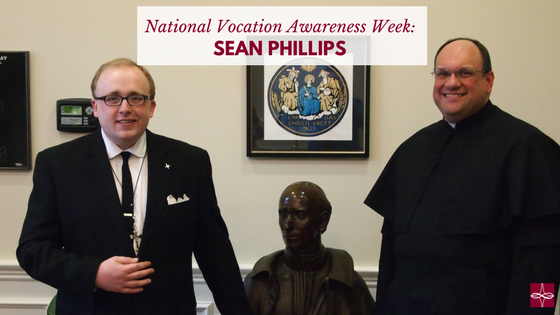
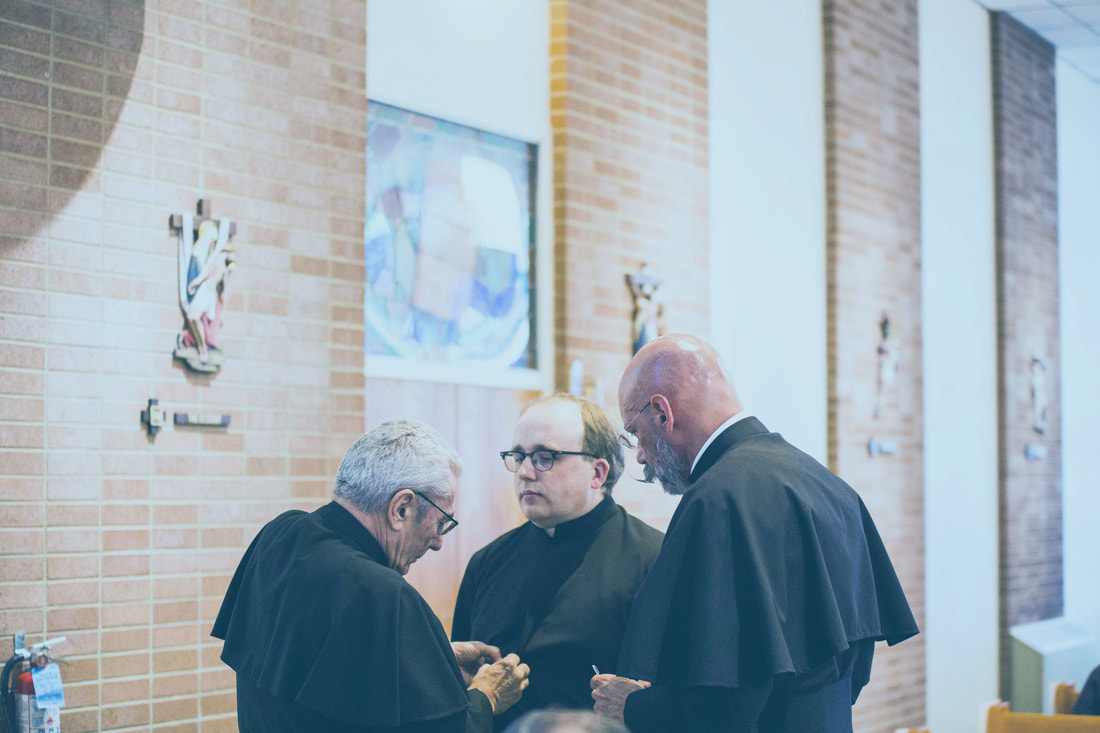

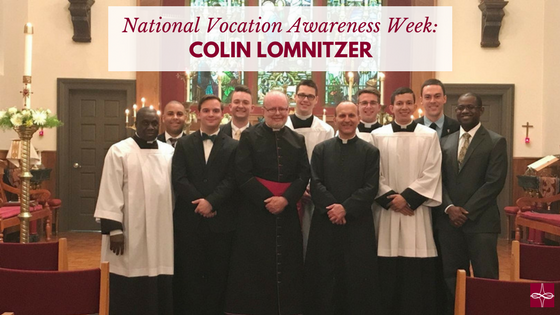
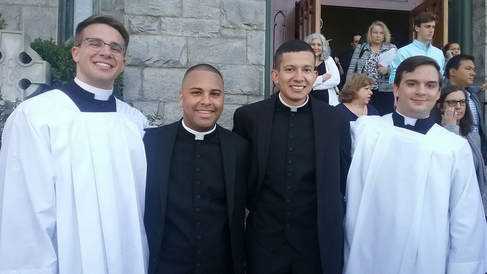
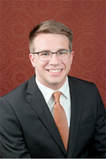
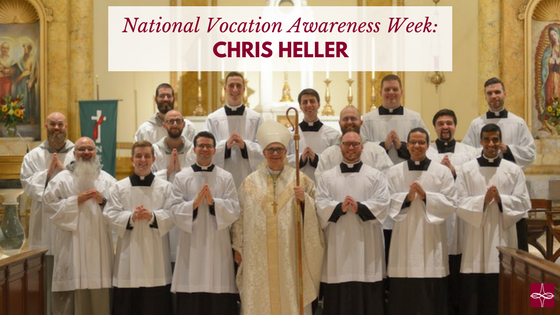
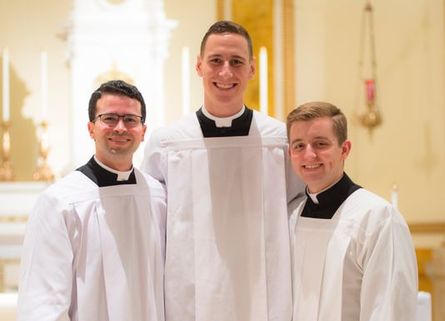
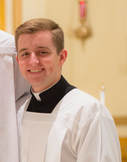
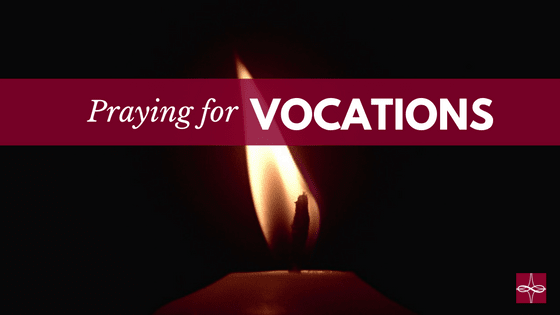
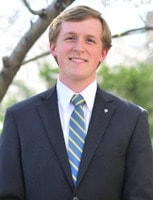


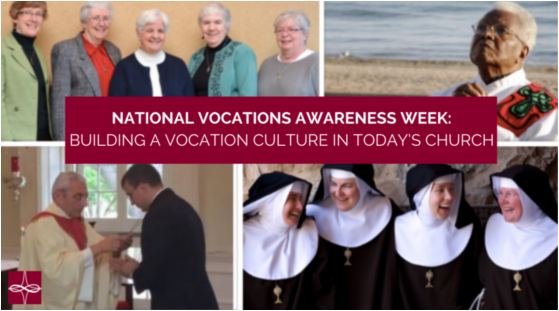
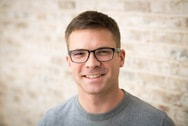
 RSS Feed
RSS Feed